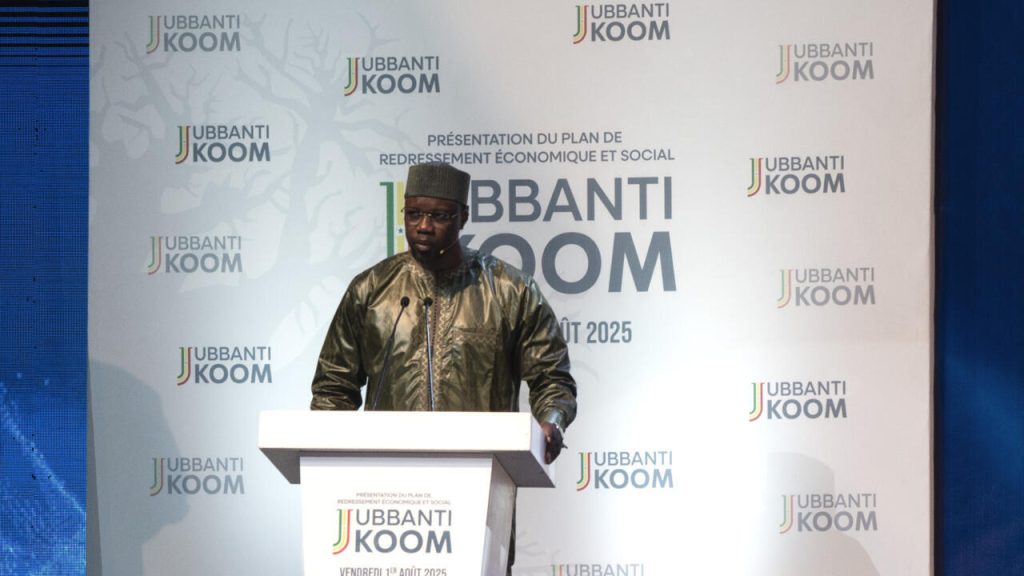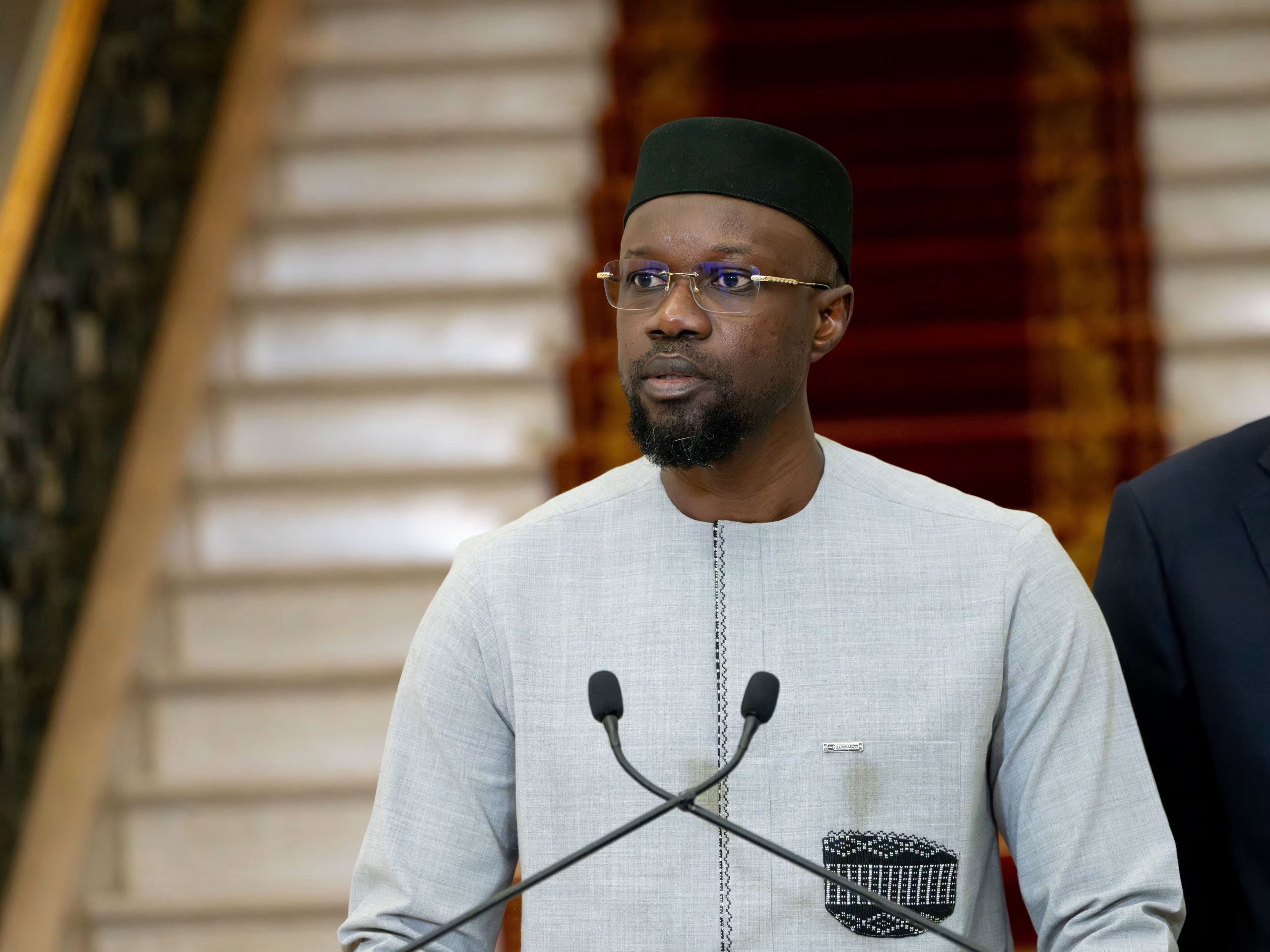Senegal’s Prime Minister Ousmane Sonko unveiled a new economic recovery plan on Friday aimed at revitalising the heavily indebted nation.
The strategy focuses on boosting domestic funding to reduce dependence on foreign debt and investment, a core promise of President Bassirou Diomaye Faye’s government.
Speaking at a ceremony in Dakar, Sonko announced that the plan is designed to have “90 per cent of resources… come from the mobilisation of internal resources and without external debt.” This declaration was met with strong applause from government officials, including President Faye.
The new administration, led by Faye and his political mentor Sonko, claims to have inherited a significant economic crisis from their predecessor, Macky Sall.
Senegal’s economy is currently burdened by a 14% budget deficit and a public debt that stands at 119% of its GDP.
An International Monetary Fund (IMF) team confirmed these figures, revealing that the previous government had misrepresented budget deficits from 2019 to 2023.

Credit: France 24
Sonko’s plan, which he said “reflects the strong commitment of reinforcing our country’s sovereignty,” includes several key measures:
- Reducing government spending and increasing taxation in the digital, land, and mining sectors.
- Renegotiating contracts in the oil, gas, and mining industries.
- Targeting energy subsidies to specific beneficiaries.
The prime minister stated that these measures are expected to raise 5.7 trillion CFA francs (approximately $9.9 billion), which is equivalent to the country’s 2025 budget. This initiative comes as Senegal faces a 20% unemployment rate and a poverty rate of 36%.
The plan was announced ahead of an IMF mission later this month, which is expected to review the country’s corrective measures before resuming financial disbursements.
Sonko affirmed the government’s commitment to “respect for Senegal’s international commitments,” including debt repayment, while prioritising national sovereignty and avoiding the sale of natural resources.


 Trending
Trending 